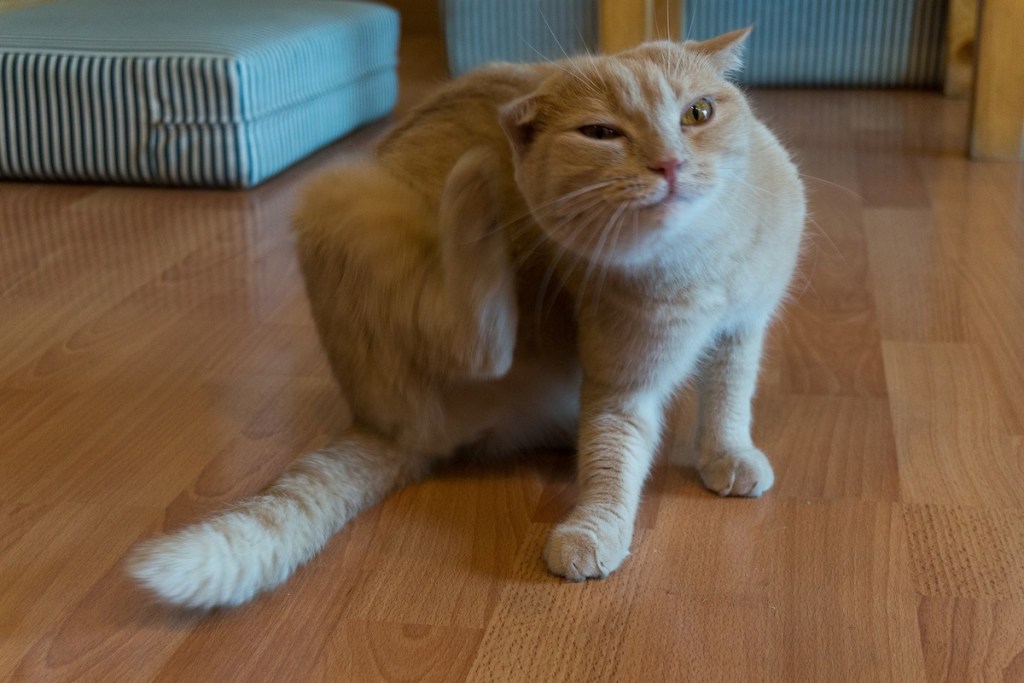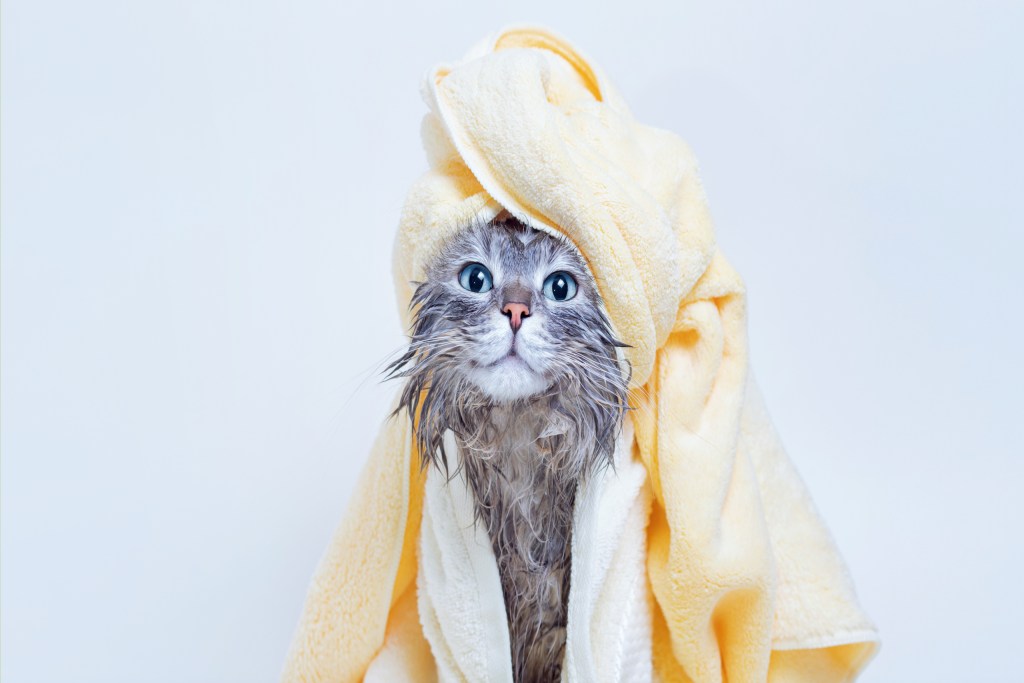Fleas can terrorize almost any furry pet and leave your animal itching and scratching. For outdoor cats, fleas can be a particular nuisance as your feline will most likely pick them up while frolicking in the grass or from other outdoor animals. Keeping your cat indoors will almost certainly decrease the likelihood of fleas and other biting bugs like ticks, flies, and mosquitoes, but you can’t eliminate the risk entirely and may find them attached to your kitty.

Does my cat have fleas?
You see your cat scratch once. Then he goes at it again. Then again. Is it just a patch of dry skin? A quirk? Nervous behavior? While it seems impossible for an indoor animal to get fleas, it can happen and wreak just as much havoc as if your cat were exploring the great outdoors. The first step is to confirm that fleas are indeed the culprit and that your cat doesn’t have another condition that’s causing his itch. A flea comb may come in handy here since it can help you find the presence of fleas — you might even see one or two as you dig through your cat’s fur. As always, it’s important to consult a vet, especially if you think anything else might be wrong or if your cat might need special care when dealing with his fleas.
Why does my indoor cat keep getting fleas?
Even though your cat may exclusively live indoors, you do not. Fleas can get inside the home on you or your other animals, like a dog. Even animals you don’t know are in your house, like mice, can bring them in. Plus, your cat probably doesn’t stay inside all the time and that trip to the groomer can wind up with your cat’s shiny coat being home to bugs. Once they’ve entered, your cat is fair game, and the fleas will then continue to reproduce until you can eliminate them.
Once they’ve taken hold, your cat will spread his fleas around the house, particularly in the rooms he frequents and in his cat litter. Unfortunately for us, fleas thrive in litter boxes and will often lay eggs there. That means even if you treat all the fleas currently feasting on your pet, if you find your cat sleeping in the litter box, fleas may have moved back in. More burdensome yet, getting rid of fleas means killing not only the ones on your cat but all of them in your house as well.

How do I get rid of fleas?
These little insects feed on your cat’s blood and cause discomfort in the process when they bite your feline’s skin. Worst of all, it’s not just a bother to you and your kitty; fleas also can transmit diseases, and excessive scratching can lead to infections.
Once you’ve determined that fleas are what’s keeping your cat scratching, it’s time to look into treatments. Most cats can be given a topical treatment or shampoo that keeps these pests off your pet and kills the ones that latch on. The flea comb can help, too, especially to give your cat some relief while another treatment is working. In addition, oral medications will help kill fleas currently roosting on your cat’s fur — but they might not have a lasting impact over time. Consult your vet to determine which regimen will suit your animal best.
To prevent fleas in the future, invest in a monthly flea treatment and change his litter frequently. Be extra careful when you take your cat outside or when he comes into contact with other outdoor animals. Remember, if you have other pets, you’ll need to be treating them, too, or they will all share fleas with each other. You should also wash any carpets or bedding your cat might have used while he was a flea factory. Use only pet-friendly cleaners or hire a professional if your bug problem has gotten more serious.
While keeping your cat inside will surely decrease his chances of getting fleas, he can still manage to catch the occasional trespasser. By maintaining a monthly treatment schedule and thorough cleaning regimen, you’ll keep the pests off your pet and out of your home.
Editors' Recommendations
- Wondering why cats chirp? Fascinating reasons why your cat chirps at birds (and you)
- Your cat trilling is actually a good thing – here’s why
- Why doesn’t my cat meow? Here are 5 reasons why your feline friend is silent
- The kind of nutty behavior to expect if you don’t neuter your cat
- Cat begging for food? How to make it stop for good so you can eat in peace




